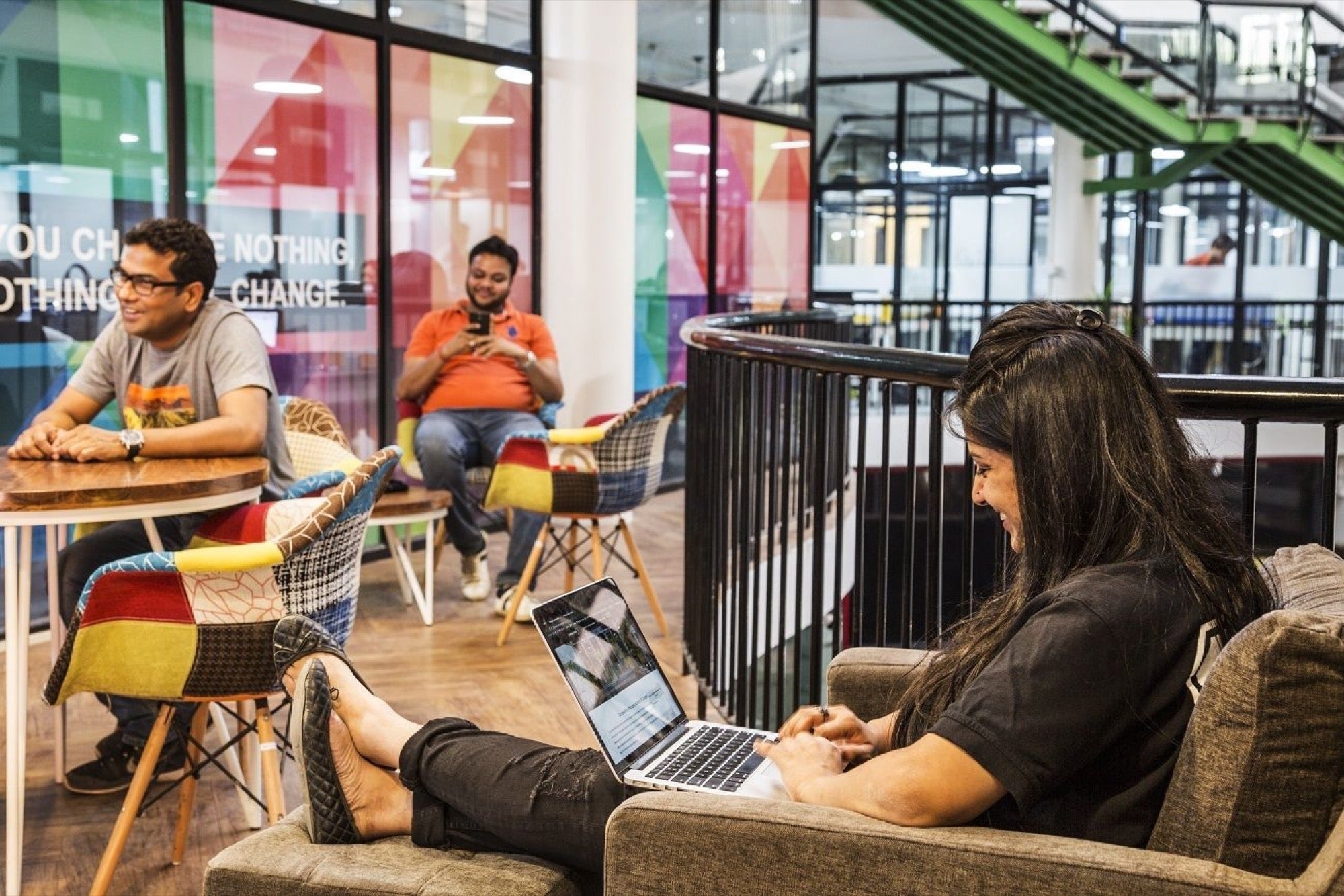How These Entrepreneurs Scripted the Success of their Co-working Space Biz From three to thirteen hubs across Delhi NCR, Mumbai, Bangalore and Hyderabad in four years, the company has grown from strength to strength
You're reading Entrepreneur India, an international franchise of Entrepreneur Media.

While most people complain about their workplaces being drab and dull, start-ups have been lobbying to change it around. A new thing for all is the funky workspaces and even co-working spaces that are conducive for community learning.
The concept of co-working spaces has added to the evolution of the start-up world. The idea, under one roof you won't just get to learn from your peers but will also get the opportunity to sit with mentors and investors to validate your idea, worked well with entrepreneurs.
Entrepreneur India caught up with Pranay Gupta, co-founder of 91Springboard, as he spoke about their journey of building one of India's popular co-working space.
An Idea by Chance
But to Varun Chawla, Pranay Gupta and Anand Vemuri, the idea came as an off-shoot of another idea that they were working on. And when they stumbled upon the concept of a co-working space, 91springboard came to life.
"The intent in the beginning wasn't even to build a co-working space, the idea was to build a small fund. But because the economics of a fund don't work out well, we decided to have a space where our start-ups can sit, help and interact with each other. While fundraising was taking its own sweet time, the space got filled up immediately. Initially, we thought we coined the term co-working, that's until we Googled it and realized it existed globally," said Pranay Gupta.

While the trial and error method worked out great for them, it wasn't until they built the third hub that they realized the real power of it. "The first one was in Delhi and second in Gurgaon. But the third one in Hyderabad was a turning point. At first, we considered shifting to Hyderabad but that wouldn't be a scalable model. That's when we realized that we could function remotely with a good team and can scale it up," added Gupta.
They also have two Co-founders working out of Singapore, Deepak Sharma and world renowned surgeon Susan Lim.
Challenges of Building a Community
From three to thirteen hubs across Delhi NCR, Mumbai, Bangalore and Hyderabad in four years, their 'spring' hasn't stopped functioning. However, there were many challenges on their way as well. "Fortunately or unfortunately, when we started, we didn't have the big investor backing. So, we got into survival mode quickly and had to ensure that the hubs are profitable," he said.
While the concept of shared work spaces is common today, it wasn't the case when they started. The idea that you could be sharing a cubicle with someone who could even be your rival company, wasn't one that fit into everyone's work flow.
"It was difficult, especially when the key value add we had was the community, and how does one explain that. So, we continued to focus on helping people, bring in a certain amount of warmth and a culture where entrepreneurs are freely interacting with each other and can also benefit from the set-up," he explained.
Once the culture was built, referrals became a big thing for them.
While they started with the idea of having start-ups and freelancers seated in the hubs, Gupta asserted that they have evolved. "We now have over 150 companies working out of our hubs along with 8-9 investment companies and off shoots of global biggies," he informed.
The Government Angle
Seeing their success in creating an impact, they are one of the incubators selected for the Atal Innovation Mission programme, where they have received funds to further help start-ups. But does that bring in pressure too? "We feel more responsible definitely. We look at innovation and scale. With this fund, we can further help companies and add value. We also believe that entrepreneurs don't need a handhold at every step, they will figure it out on their own. If we become a typical incubator, where we sit with them every week and solve their problems, they won't scale," said Gupta.
Scaling for Success
With their focus on Tier I and Tier II cities currently, their idea is to grow fast but at a pace that they can handle. But even with the mushrooming of co-working spaces across the country, Gupta believes they are not a threat. "The market is huge, it's a winner take all market and they are helping us grow the market. For the first two years, we were the ones educating the market, now they are helping us. Each one of us has a uniqueness to our model, and as long as we are doing what we do well and keep innovating we will benefit the ecosystem. We will also look at going global but not immediately," he said.











